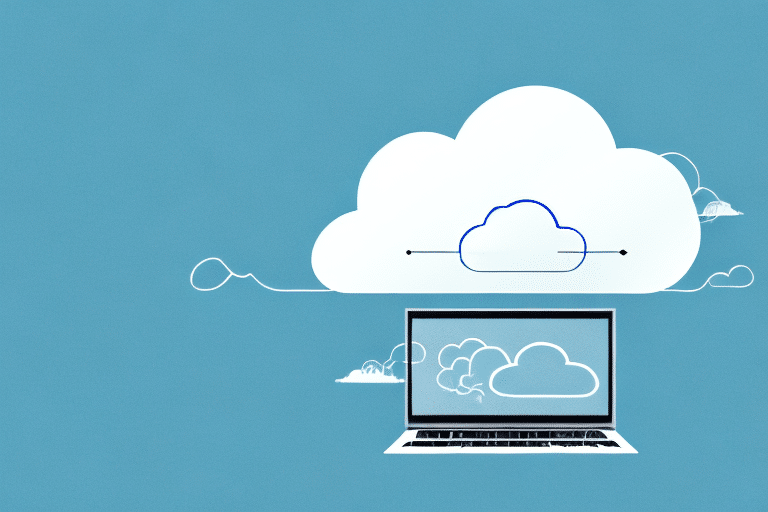Unlock the secrets hidden within your data! In today’s fast-paced and interconnected world, businesses are gathering more information than ever before. From customer behavior patterns to market trends, big data has become a valuable asset for companies looking to gain a competitive edge. But with great power comes great responsibility – how can you ensure the security of your precious data? Fear not, because we have the answer: Google Cloud Platform (GCP)! In this blog post, we will explore the best practices and strategies for securing big data on GCP, so you can harness its potential without compromising on safety. So let’s dive in and discover how you can protect your data fortress in the cloud!
The Cloud as a Solution for Big Data
In today’s digital era, the amount of data being generated is growing exponentially. From social media posts and online transactions to sensor data and machine logs, organizations are inundated with vast amounts of information. This is where the cloud comes in as a game-changer.
By leveraging cloud computing resources, businesses can store and process massive amounts of data efficiently and cost-effectively. The scalability offered by the cloud allows companies to expand their storage capacity or compute power on-demand, eliminating the need for expensive infrastructure investments.
Furthermore, using cloud services provides flexibility in terms of accessibility. With data stored in the cloud, authorized individuals can access it from anywhere at any time. This enables seamless collaboration among team members spread across different locations.
Another significant advantage of utilizing the cloud for big data processing is its ability to handle complex analytics tasks. Advanced tools and technologies available on cloud platforms enable organizations to perform sophisticated analysis techniques such as machine learning algorithms or predictive modeling without investing heavily in specialized hardware or software.
Moreover, security measures implemented by reputable cloud service providers ensure that sensitive big data remains safeguarded against unauthorized access or breaches. Encryption protocols and multi-factor authentication add an extra layer of protection to prevent potential cyber threats.
Migrating big data operations to the cloud offers numerous benefits including scalability, accessibility, advanced analytics capabilities, and robust security measures. As more businesses recognize these advantages while grappling with ever-increasing volumes of information, embracing a cloud-based solution becomes increasingly essential for staying competitive in today’s fast-paced business landscape
Google Cloud Platform as a Solution for Big Data
Google Cloud Platform (GCP) is an incredibly powerful solution for handling big data. With its robust infrastructure and advanced analytics capabilities, GCP provides businesses with the tools they need to effectively manage and analyze large datasets.
One of the key advantages of using GCP for big data is its scalability. Whether you’re dealing with terabytes or petabytes of information, GCP can handle it all. Its flexible storage options, such as Google Cloud Storage and BigQuery, allow you to store and process massive amounts of data without worrying about capacity constraints.
Another benefit of GCP is its suite of powerful analytics tools. From machine learning algorithms to data visualization dashboards, GCP offers a wide range of tools that enable organizations to gain valuable insights from their big data. With these tools at your disposal, you can uncover patterns, trends, and correlations that may have otherwise gone unnoticed.
In addition to scalability and analytics capabilities, security is also a top priority on GCP. The platform employs multiple layers of security measures to protect your sensitive data from unauthorized access or breaches. It uses encryption in transit and at rest, along with strict access controls and identity management protocols.
Furthermore, GCP ensures reliability by offering high availability across its global network infrastructure. This means that your big data applications will continue running smoothly even in the face of hardware failures or other disruptions.
Best Practices and Strategies for Securing Big Data on GCP
Securing big data is of utmost importance in today’s digital landscape. With the increasing amount of sensitive information being stored and processed, it becomes crucial to implement best practices and strategies to protect this valuable asset. When using Google Cloud Platform (GCP), there are several key measures you can take to ensure the security of your big data.
First and foremost, access control should be a top priority. Implementing strict authentication mechanisms, such as multi-factor authentication (MFA) and strong password policies, helps prevent unauthorized access to your data. Additionally, regularly reviewing user privileges and removing unnecessary permissions reduces the risk of potential breaches.
Encrypting your data at rest is another critical step in securing big data on GCP. By utilizing encryption technologies like Google Cloud Key Management Service (KMS), you can safeguard your data from unauthorized access even if the storage medium is compromised.
Furthermore, monitoring and logging activities within your GCP environment play a vital role in identifying any suspicious behavior or security incidents promptly. Leveraging tools like Google Cloud Security Command Center allows for real-time visibility into potential threats or vulnerabilities.
What more should you do?
Regularly backing up your big data ensures that you have an additional layer of protection against unexpected events. These events might include hardware failures or natural disasters. Utilizing GCP’s built-in backup solutions provides peace of mind knowing that your valuable information is safe and recoverable.
Staying informed about emerging security threats and keeping up with industry best practices is essential for maintaining robust security measures for big data on GCP. Participating in training programs offered by Google Cloud Platform helps educate users about new techniques for enhancing their overall security posture.
By following these best practices and strategies for securing big data on GCP, you can minimize risks associated with unauthorized access. You can also protect sensitive information through encryption protocols, and detect potential threats through comprehensive monitoring systems. Moreover, you can maintain reliable backups for disaster recovery purposes, all while staying updated with evolving trends in cloud security.
Conclusion
Securing big data on Google Cloud Platform (GCP) is of utmost importance in today’s digital landscape. As organizations continue to rely heavily on big data analytics for critical insights and decision-making, protecting this valuable asset becomes paramount.
Throughout this article, we have explored the challenges associated with securing big data and discussed best practices and strategies specific to GCP. By following these recommendations, organizations can enhance the security posture of their big data deployments:
Implement strong access controls:
Ensure that only authorized individuals have access to the sensitive data stored in GCP. Use Identity and Access Management (IAM) policies to define granular permissions based on roles, responsibilities, and least privilege principles.
Encrypt your data:
Utilize encryption techniques at rest and in transit to safeguard your big data assets from unauthorized access or interception. Take advantage of GCP’s managed encryption services such as Google Cloud Key Management Service (KMS) for secure key management.
Monitor and detect anomalies:
Deploy robust monitoring solutions that provide real-time visibility into your GCP environment. Use tools like Google Cloud Security Command Center (SCC) for continuous threat detection, vulnerability scanning, and proactive incident response.
Backup your data regularly:
Implement a comprehensive backup strategy to ensure business continuity in case of any unforeseen events or disasters affecting your big data infrastructure on GCP.
Regularly update software components:
Keep all software components up-to-date with the latest patches and security updates provided by both GCP and third-party vendors involved in your big data ecosystem.
Remember that securing big data is an ongoing process rather than a one-time task. It requires constant vigilance, regular audits, staff training, and collaboration between IT teams. These IT teams are responsible for security operations as well as those managing the underlying infrastructure on GCP.
By adopting these best practices along with leveraging the advanced security features offered by Google Cloud Platform, organizations can confidently harness the power of their big data while ensuring its integrity, confidentiality, and availability.





